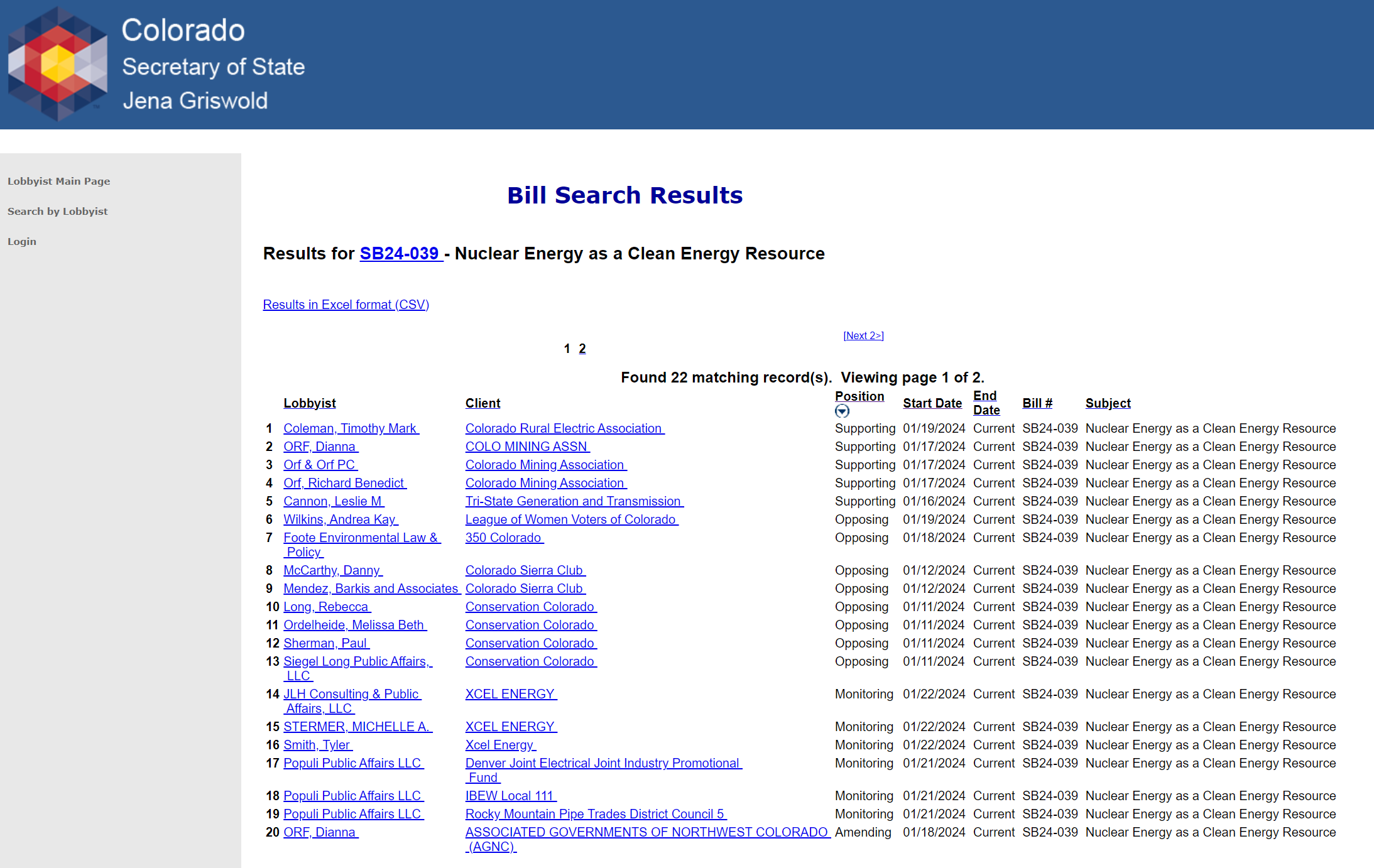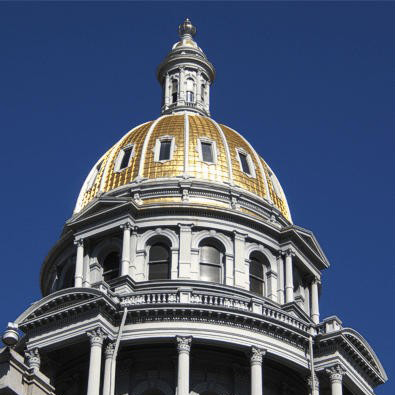Colorado lawmakers are set to consider their first nuclear energy bill of the 2024 legislative session later this week.
SB24-039, dubbed “Nuclear Energy as a Clean Energy Resource,” is scheduled to go before the Senate Transportation and Energy Committee for first reading on Wednesday. The bill seeks to level the playing field for carbon-free energy technologies under state law by including nuclear energy in the statutory definition of “clean energy.” Nuclear is presently excluded by name.
According to the text of the measure:
The statutory definition of ‘clean energy’ in current law determines which energy projects are eligible for clean energy project financing at the county and city and county level. The statutory definition of ‘clean energy resource’ in current law determines which energy resources may be used by a qualifying retail utility to meet the 2050 clean energy target. The bill updates the statutory definitions to include nuclear energy.
In addition to the implications mentioned above in the text of the bill, the current statutory definition of clean energy also determines which energy resources may be used by a qualifying retail utility to meet Colorado’s renewable portfolio standards (RPS). The RPS currently stands at 30 percent, which all of the state’s utilities have thus far achieved, but it has not been updated since 2020. Should the General Assembly move to increase that standard—which the most recent official platform of the Colorado Democratic Party explicitly calls for—it would act as a de facto ban on nuclear energy in the state.
The bill was introduced by Senator Larry Liston (R.), who ran a similar bill last session before it was unceremoniously killed along party lines by the same committee. The Transportation and Energy Committee remains under 5-2 Democratic control, leaving the prospects of the bill’s success a second time around unlikely. Additionally, a who’s who of committed anti-nuclear environmental groups (and key Democratic allies) have already registered their opposition to the measure, further increasing the likelihood that the bill will meet a similar partisan demise.

But such long odds should not discourage supporters of clean, reliable nuclear from making their voices heard. The bill is too important to simply write off.
As I wrote the last time it was considered:
[The bill] simply would have amended the state’s current statutory definition of “clean energy,” which at present farcically excludes nuclear by name alongside fossil fuels, to include the country’s largest single source of carbon-free electricity generation.
That would allow an enterprising electricity provider, be it a utility, co-op, or independent power producer, to evaluate a suite of technologies on an even playing field when deciding which course to take in meeting Colorado’s decarbonization goals.
…
Nuclear energy is a carbon-free, low marginal cost source of electricity capable of operating 24 hours a day, seven days a week. No backup fossil fuels are required. It doesn’t skip a beat on an overcast day or when the wind ceases to blow, and it can even be used to produce process heat for hard-to-decarbonize sectors of the economy, such as heavy industry.
It is among the safest and lowest emitting technologies humanity has ever produced on a lifecycle basis, on par with wind and solar. It is the most land-efficient energy source per unit of electricity generated, requiring 18 to 27 times less land than a utility-scale solar installation, which translates to fewer land use conflicts and NIMBY opposition, as well as a boon for conservation and species biodiversity that more land-extensive energy resources would otherwise disrupt.
Additionally, an Independence Institute/Cygnal poll from last year found that 54 percent of likely Colorado voters said they favor including nuclear power in Colorado’s clean energy mix by 2040. That support crossed party lines to include 65 percent of Republicans, 52 percent of Unaffiliated voters, and a plurality (48 percent) of Democrats.
So even if the bill once again faces long odds of making it across the finish line this year, lawmakers that vote to kill the bill do so in contravention of the opinions of Colorado voters.
Those who wish to sign up to provide public comment on SB24-039 before the Senate Transportation and Energy Committee this Wednesday may do so here.









